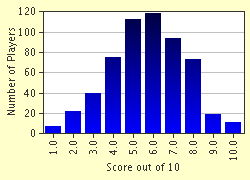Quiz Answer Key and Fun Facts
1. Who was the British Prime Minister who negotiated away the Sudetenland?
2. Who was Prime Minister of France when Germany opened the western front campaign on 10 May 1940?
3. Who was the German foreign minister during World War II?
4. Who was US Secretary of War during the Second World War?
5. Who were Frank B. Kellogg and Aristide Briand?
6. Who was the leader of Nationalist (Fascist) Spain during the Spanish Civil War?
7. Who was president of Czechoslovakia during the Munich crisis?
8. Jozef Beck was Polish foreign minister from November 1932 until he fled to Romania during the German invasion of Poland in September 1939. Courted by both Germany and the Soviet Union to form alliances, Beck refused to align his country with either power. Which other country did Beck refuse to include in any political alliance with Poland?
9. As Soviet Commissar for Foreign Affairs. this Russian diplomat startled the western world when he signed the Nazi-Soviet Pact of 23 August 1939. Who was he?
10. Joseph P. Kennedy, father of President John F. Kennedy, used his great fortune to gain favor with the Roosevelt administration. To reward his faithful democrat financier FDR appointed Kennedy to which important state department post?
Source: Author
HTG
This quiz was reviewed by FunTrivia editor
bloomsby before going online.
Any errors found in FunTrivia content are routinely corrected through our feedback system.

